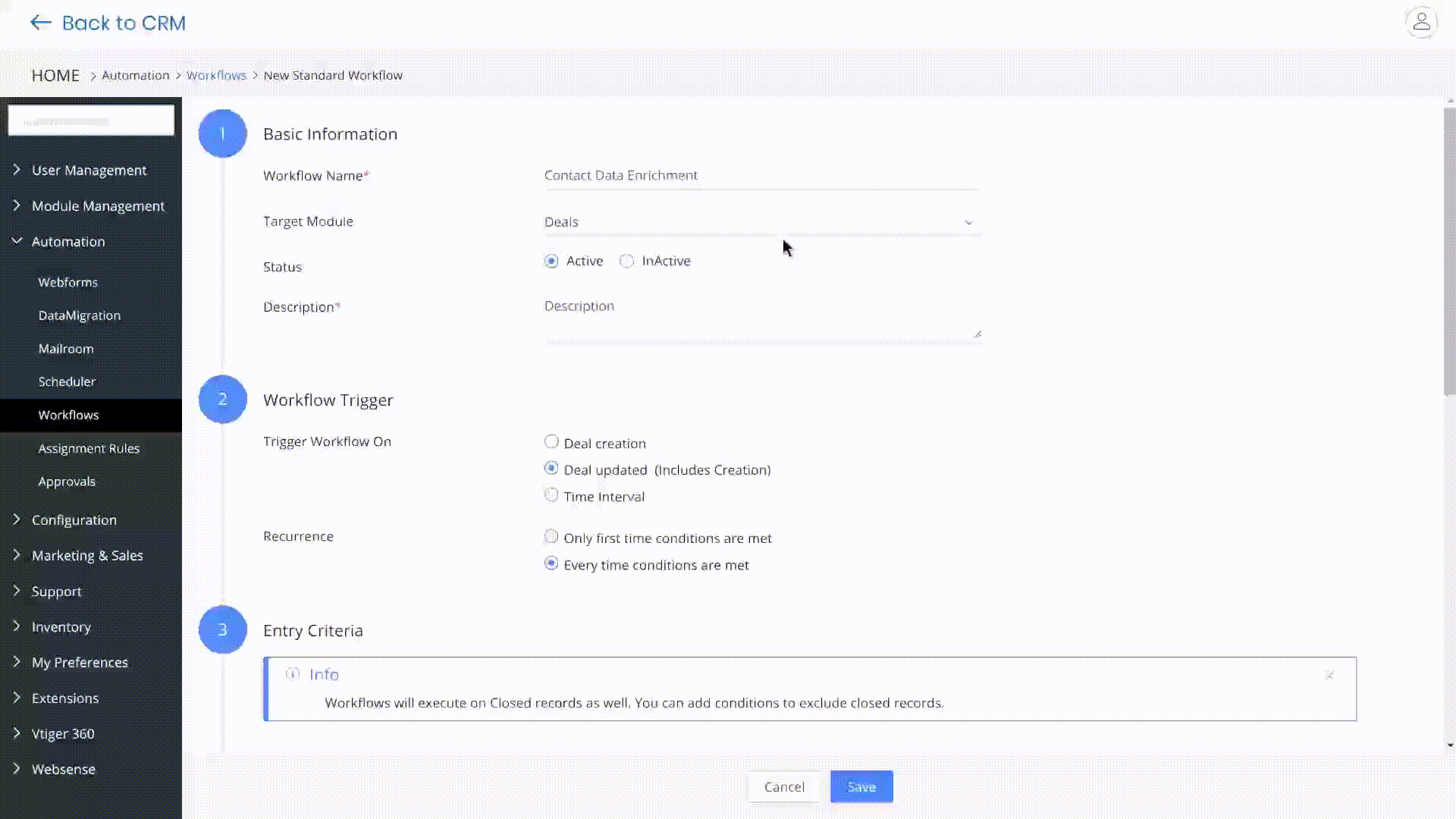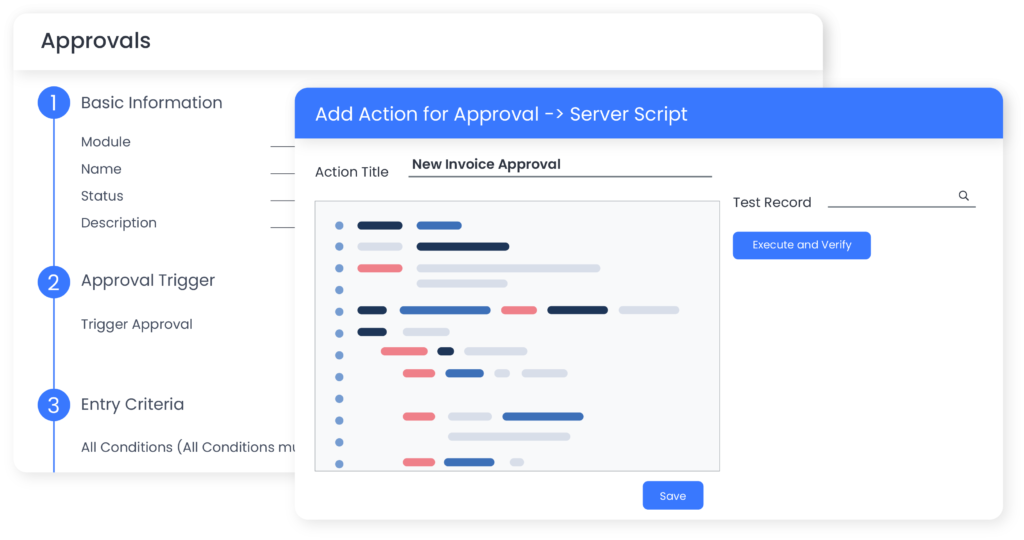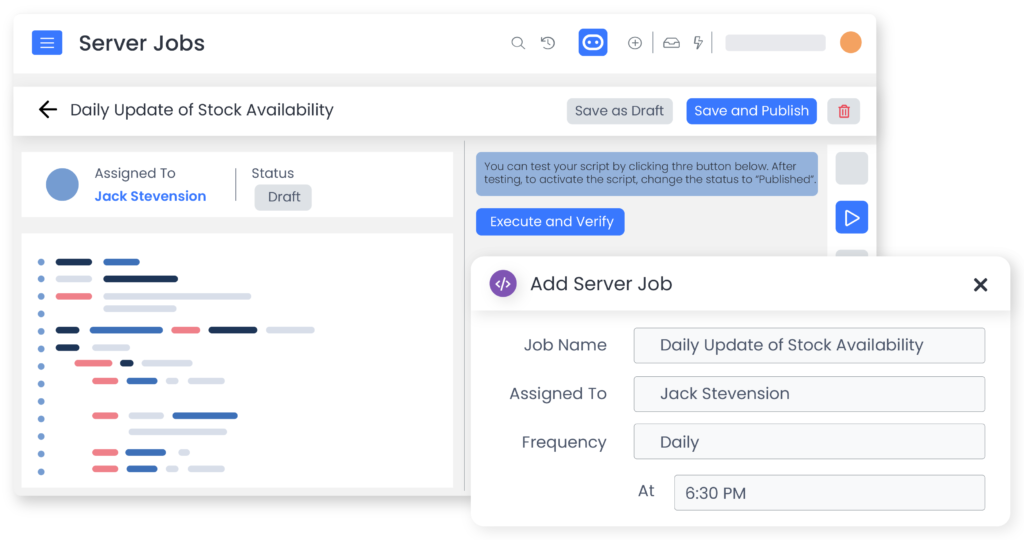Do you use third-party applications to validate your email address, enhance lead information, or any other task?
Businesses often use various external applications to carry out everyday repetitive activities or those unique to their business needs. What if I tell you that you can run a code on the CRM server to perform and automate these activities?
Yes, you heard that right. Using the Vtiger Server Scripts functionality, you can write and execute code on Vtiger’s server to perform these functions.
Server scripting allows you to create custom code, and automate tasks without needing to modify the core CRM code.
Let’s deep dive into it.
Defining Server Scripts and Jobs in Vtiger CRM
Let us talk about Vtiger Server Scripts first.
Server-side scripting is a technique used in web development where the server executes and processes the scripts or commands, and then generates a response that is sent back to the client or user’s web browser. This is in contrast to client-side scripting, where the scripts are executed directly in the user’s web browser.
Server Scripts are available in the Vtiger Workflows and Approvals settings. You can run a script to perform any action by selecting the Server Script option from the Actions Tab.
Server Script in Workflows

Consider the lead information in your CRM is limited to only name, contact details, and email addresses making it difficult to run targeted campaigns. To obtain in-depth information such as company names, and social profiles, you would typically need to invest a significant amount of time in manual research.
However, by writing a server-side script, you can automate the process of populating lead records with missing information from external sources, thereby enriching the lead. This approach can save time and streamline the process of gathering valuable data.
Similarly, you can execute code on the server to validate email addresses, update the credit score of a contact, and more.
Server Script in Approvals

Server scripting can also be done to automate the approval process. For instance, after creating an invoice, a code can be written to send a message to the manager’s chat application, such as Google Chat or Telegram, requesting approval. So, once the invoice is created your manager will receive a notification automatically, thereby making the approval process more efficient.
So, what are Server jobs?

Server Jobs in Vtiger are a set of commands on the server side that are executed at scheduled intervals. The time frequency can be hourly, weekly, or daily. Suppose you want to update stocks available to a data warehouse at 6:30 PM every day. You can write code, and the action will be triggered at the set time.
Difference between VTAP and Server Scripts
As someone who has been following Vtiger CRM for a long time, you may be curious about why there is a need for Server-Side Scripting when there is already a low-code platform called VTAP available.
VTAP is a no-code platform that enables users to create custom business processes without writing code. It is client-side scripting software, where the code is written and executed in the user’s browser to improve the user experience and interactivity of a website.
Hence, the main difference between server-side and client-side scripting is that the former is done on the server and the latter on the client.
Benefits of Server-Side Scripting and Server Jobs
Some of the key advantages of using Server-Side Scripting and Jobs in Vtiger are as follows:
1) Automation: Server-side scripting allows you to automate tasks that involve multiple steps or interactions with other systems. You can write a script for day-to-day activities and save significant time. This can reduce the risk of errors compared to performing tasks manually.
With Server Jobs, you can schedule specific actions to run automatically, ensuring that important activities are done on time.
2) Customization: Write custom code and extend the functionality of the CRM feature that is specific to your business. You can write custom codes to understand the lifetime value of a customer based on the purchase history or behavior, modify the way records are displayed on the User Interface (UI), etc. This level of customization can allow you to tailor workflows to ease the process.
3) Security: Server-side scripting can be more secure than client-side scripting. This is because the code is run on the server, not on the client’s computer, so it can not be easily viewed or modified by users.
Read our Server-side Scripting and Jobs User Guide to learn more scripting, helper methods, and use cases.
So, are you looking to streamline your business processes, reduce manual effort, and improve efficiency?




